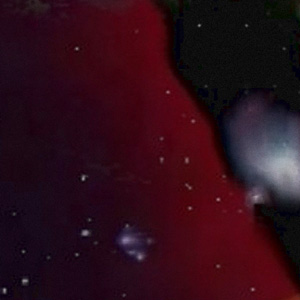Tell us all you can about “Arks”—from nascent idea to this wonderful finished product.
I sometimes rewrite and/or expand pieces using different approaches, and that was the case with ‘Arks’. I started with the image of two friends and a tree-house and the result was a pretty bad rhyming poem. But the idea, based as it is on memory, stayed with me and eventually became a very short bit of prose that I managed to get published at The Green Tricycle. Then something like an imaginative ripple effect occurred for me with pictures of empty houses, saws, dams, floods etc. all gathering around the tree-house, or somehow leading to it. I let it get surreal and somewhat mythic in my mind and the ‘scenes’ began to gel. I then felt I had to do something with the language, not a poem exactly and not straight prose, so I decided to see how a purely monosyllabic style might work tonally. It went on from there until I was happy. Then, after a couple of tweaks, SmokeLong said they’d publish it and I was even happier.
These juxtaposed sections provide a challenge for readers—and writers. Talk a bit about that challenge.
It’s hard to know except I suppose the effort it would take to recognize how each section progress from the previous section, representing a certain stage in the journey of the two boys. I think the contrast between the beginning and end is pretty strong, but everything in between is perhaps somewhat murkier and might take a reader more time to process. I also think the short length of the whole piece and the suddenness of each transition might require a second reading or more post-reading contemplation than might be usual, as long as there’s some reward to be had in doing so, which I naturally hope there is.
The imagery patterns in this piece are really “tight.” (That’s a good thing, I think.) What role do such “echo structures” play in not only your own flash fiction, but flash fiction in general?
I actually don’t write a lot of flash fiction, and when I do I’m not really thinking of the form as such, being more in a ‘poetic’ frame of mind, I suppose, and going from there. I have heard it said, though, that flash possesses many of the virtues, limitations and challenges of poetry, so the concept of echo structures is something that for me applies to both. It’s certainly one way to create unity as well as elevate a concrete image into something that can resonate more strongly or perhaps symbolically in a reader’s mind.
How has teaching writing led to your own growth as a writer?
The writing I teach is not ‘creative’ writing. It’s the academic variety, formal and largely rule-bound. My goal there is to help international students succeed in their college courses. However, the experience has made me acutely aware of just what writing rules can mean in a certain context and from there how ‘rules’ inform my own choices in how I write creatively, whether they be rules I follow or, more interestingly, rules I discover.
What vision of the world emerges from Richmond, British Columbia?
If you asked me this a few weeks ago, I would probably have talked about Richmond as a suburb of Vancouver, a destination for Asian immigration, a farming community or the like. But now I find myself thinking how this town is built upon sand, sand which makes up the Fraser River delta, and though hurricanes never reach us, we are, historically, vulnerable to floods. More worrying, however, would be an earthquake (the ‘big one,’ experts assure us, will come sooner or later), which would instantly turn the region to quicksand. My vision of the world from here then? Radically precarious.


 The core workshop of SmokeLong Fitness is all in writing, so you can take part from anywhere at anytime. We are excited about creating a supportive, consistent and structured environment for flash writers to work on their craft in a community. We are thrilled and proud to say that our workshop participants have won, placed, or been listed in every major flash competition. Community works.
The core workshop of SmokeLong Fitness is all in writing, so you can take part from anywhere at anytime. We are excited about creating a supportive, consistent and structured environment for flash writers to work on their craft in a community. We are thrilled and proud to say that our workshop participants have won, placed, or been listed in every major flash competition. Community works.